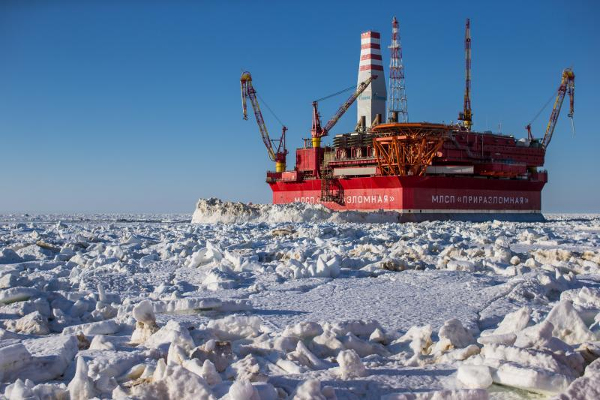NEW DELHI: India plans to explore connectivity corridor between resource rich Arctic Region and International North South Transport Corridor (INSTC), suggested Indian envoy to Russia Bala Venkatesh Verma.
“We look forward to cooperating with Russia in the Arctic Council and we are actively discussing potential areas of cooperation including in the sphere of energy security, scientific exploration and research and connectivity. We will explore the possibility of establishing connectivity between the Arctic Region and INSCTC,” Verma said in his address at the IX International Forum ‘Arctic: Today and the Future”.
INSTC seeks to connect Mumbai with St Petersburg via Iran that could lead to a new connectivity corridor in Eurasia.
Verma said India is currently discussing with Russia cooperation in connectivity via the Northern Sea Route and joint energy projects in Arctic region. The envoy said India is interested in development of infrastructure, shipping route and harnessing of minerals in Arctic region in a sustainable manner. The use of Northern Sea Route by India had figured at the last annual summit on Sep 4 held in Vladivostok.
“We look forward to the Russian Presidency of the Arctic Council from 2021-23 and are ready to cooperate for mutual benefit with Russia in areas such as promotion of sustainable socio-economic development, LNG projects, navigational access, gas production and liquefaction and diversified transport corridors,” informed Verma.
During President Vladimir Putin’s visit here last October Russia that holds significant part of resource-rich Arctic region offered India access to the NSR that connects Europe with the Pacific Rim including additional supplies of natural gas and joint development of gas fields to meet Delhi’s growing energy demands.
The Arctic contains a wealth of petroleum and mineral resources. Currently, the region produces about one tenth of the world’s oil and a quarter of its natural gas. The Russian Arctic is the source for about 80 percent of this oil and virtually all of the natural gas. The most developed sector of the region, the Russian Arctic also holds abundant deposits of nickel, copper, coal, gold, uranium, tungsten, and diamonds.
The Northern Sea Route – is the main sea route in the Russian Arctic. The Russian ministry of transport forecasts cargo turnover along the Northern Sea Route by 2020 will grow tenfold to 65 million tonnes a year. The Route crosses seas of the Arctic Ocean (Kara, Laptev, East Siberian and Chukotka) and partially the Pacific Ocean (the Bering Sea).
The Northern Sea Route from the Kara Gate to the Providence Bay is about 5,600km long. The distance between St. Petersburg to Vladivostok along the Northern Sea Route is more than 14,000 km, while the distance vessels have to cover by the Suez Canal is more than 23,000 km.
Source: ET
Image Courtesy: The Arctic Institute
You may also like
-
Trade Connect E-platform For Exports Is Single Window, Fast, Accessible And Transformational: Shri Piyush Goyal
-
Dot Simplifies Approval Processes For Telecom Licenses And Wireless Equipment
-
Coal Production and Supply Trends on Positive Trajectory
-
Union Minister To Release Booklets On Promotion Of Indigenous Species & Conservation Of States Fishes
-
2nd India-Japan Finance Dialogue held in Tokyo on 6th September, 2024
